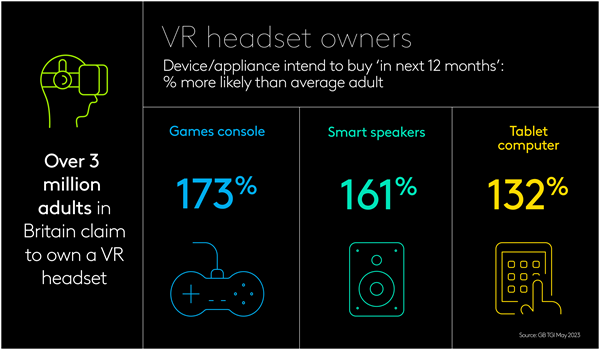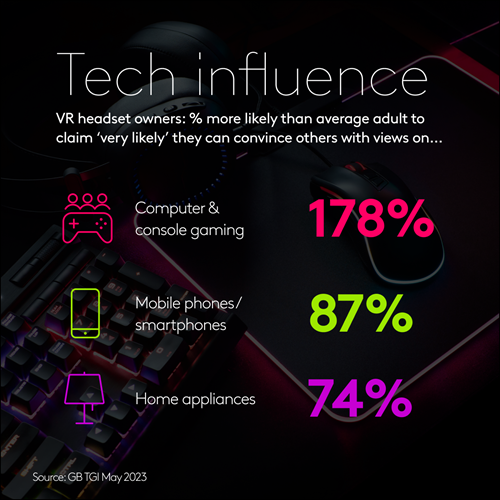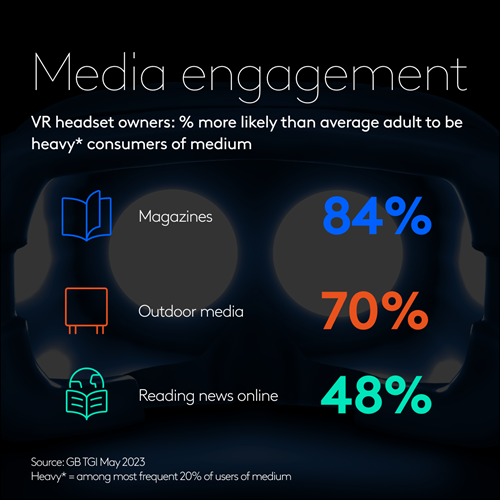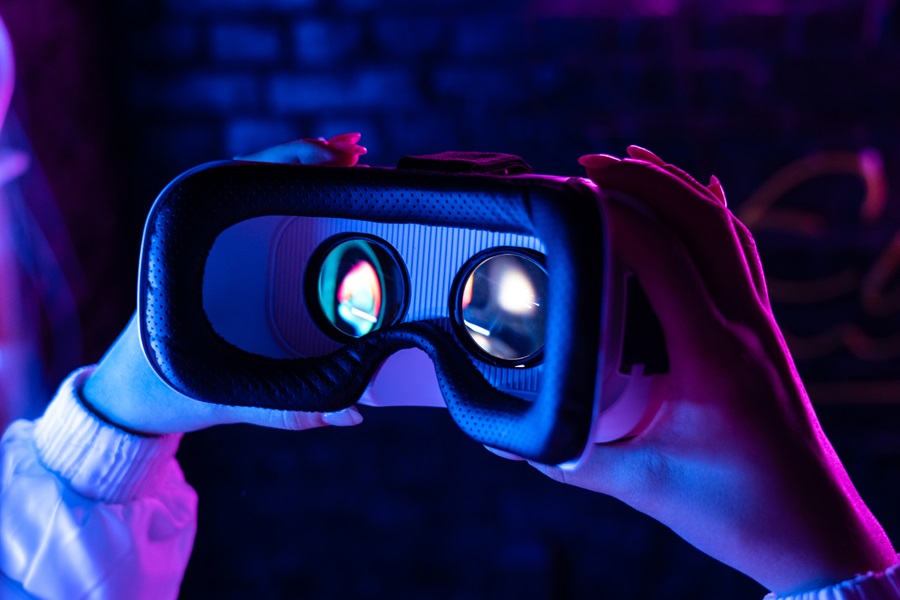Apple recently launched its much-anticipated augmented reality headset, the Apple Vision Pro, hot on the heels of Meta announcing their own Quest 3 headset in recent weeks. Clearly with these major hardware investments these tech giants are anticipating considerable growth in the virtual/augmented reality markets in the coming years.
It's fair to say the VR market in Britain and other markets is still at a very niche stage, but who owns this kind of tech already and who is intending to do so?
GB TGI data shows that 6% of adults (3.2 million people) claim to own a VR headset, with 3% of adults / 1.6million people) claiming to actually use one themselves.
Interest in buying a VR headset in the next 12 months is relatively low amongst consumers as a whole. Only 1% of adults (658,000) claim that they intend to purchase a VR headset in the next year, which is considerably lower than for a range of other appliances and devices. For example the figure for intention to buy a mobile phone is 13%, a microwave 4%, a games console 4%.
But then these existing VR headset owners are very much the vanguard of early adopters for such devices. If the tech really takes off, it is from this base of consumers that the real growth will start to come.
VR headset owners have a clear love of all things tech, as evidenced by them being considerably more likely than the average adult to intend to buy almost any tech device or appliance in the next 12 months.

VR headset owners are strong believers in their own influence when it comes to tech generally, compared to the average adult. This word of mouth influence will be important if VR technology is to see exponential growth. TGI shows they are over or around twice as likely as the average adult to believe it very likely they can convince others with their views on a range of tech items.

VR headset owners are also very engaged with a range of media beyond gaming and indeed advertising as a whole, providing a number of opportunities for appealing to them with new VR and related hardware and content. For example, they are 76% more likely to agree that they find online advertising entertaining and 71% more likely to say they enjoy watching ads featuring their favourite celebrities.


